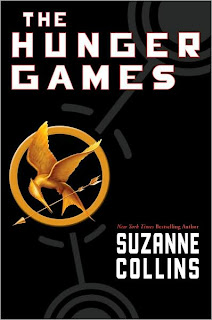When Harry Potter and The Sorcerer's Stone was released in 1999, the world of young adult literature was a different place. There was no facebook, no Call of Duty, and no wars being waged across the sea. The world, simply speaking, was much less scary and complicated. But things now have changed, and Suzanne Collins' "Hunger Games" trilogy is a violent, exciting, and dark example showing how the world of children has changed.
Set in the fictional dystopian nation of Panem, the story focuses on seventeen year old Katniss, who is forced to compete in the titular "Hunger Games." Established by the government, the games draw two competitors from each district in the Panem and make them fight to the death in the games. Of course the whole thing is televised. Brief spoilers here, Katniss eventually wins the games and starts a full blown revolution against the government
The books like Stephenie Meyer's, Twilight series are written in a first person voice. This helps Katniss express her feelings about boys, blood, and killing, but more importantly it puts the reader right in the mayhem of the games. In a day and age where hundreds of millions of people are killing every day in "Call of Duty," having a character dictate combat is a close to a literary video game as a kid can get.
Another interesting element of series is the importance of media in the story. Katniss and all the people around her use the media as a weapon. Her partner in the games, Peeta, shapes his own personal narrative involving her to increase his chances of survival. Later in the series, the dominance of media becomes more prevalent as the propaganda machine begins to churn. I'm sure Noam Chomsky would be intrigued. By now, almost all readers will have cell phones, twitter, facebook, etc so the connectivity of Katniss to the media grid is not a surprise, but a familiar comfort.
After finishing the series, the story feels very different than the young adult books, ie Harry Potter, of my youth. These books are violent, and I hope that the violent content is not a reflection on how video games, media, and two wars have created a sub-conscious need to increased violence in children's literature. While I enjoyed The Hunger Games, I couldn't help but think that while they're gripping, they do not contain magic like Rowling, Lewis, or Tolkien, but rather real shocking violence. Perhaps this is the new reality for childhood, no more magic, just war as a media manipulated game.


Have you read the Ender's game series? that's how we do war now.
ReplyDeleteJane